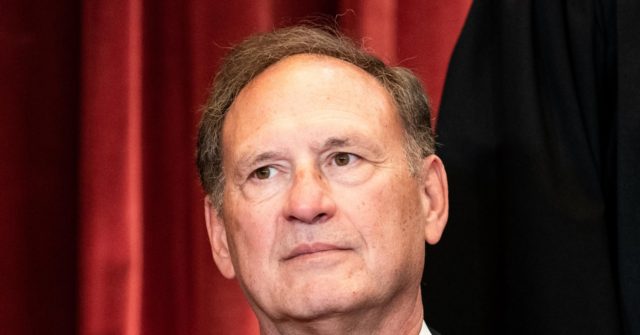
Supreme Court Justice Samuel Alito raised the problem of Crucial Race Theory during oral arguments in the case of Carson v. Makin, which checks a Maine law that provides subsidies for parents to send out children to school, except “sectarian” schools.
The existing law offers that the aid can just be used for tuition in a school if that school is “a nonsectarian school in accordance with the First Amendment of the United States Constitution.”
Throughout oral argument, the justices questioned Chief Deputy Attorney General Christopher Taubabout the significance of the word “sectarian” (as opposed to “spiritual”) and about whether there were any other restrictions on making use of state financing to provide aids or vouchers to theoretical schools.
Taub argued the law should be supported due to the fact that the state federal government of Maine is enabled to promote “spiritual neutrality.” Alito questioned that facility, and asked whether the state could money a school that “inculcates a simply materialistic view of life. Taub confessed: “Now it’s possible that, you understand, down the road some school may pop up that is teaching something else, not religious beliefs however something else, state, Marxism or Leninism or, you understand, white supremacy. Plainly, those type of schools would be doing something entirely inconsistent with a public education.”
Taub likewise confessed that the current law would not avoid such schools from being moneyed, however that “if a white supremacy school tried to participate in Maine’s program, the legislature would promptly act to state, no, you know, beyond being consistently neutral, you likewise can’t teach principles of– of– of hatred.”
Alito then asked whether a school that taught religious tolerance would be disqualified, since it was a belief that included religion. Justice Elena Kagan then asked whether Taub was positive that a school that taught white supremacy would never ever be moneyed; Taub restated that he was specific the legislature would act in that circumstance.
The following exchange then happened:
JUSTICE ALITO: Would you state the very same feature of a school that teaches vital race theory?MR. TAUB: Whether that school would be eligible?JUSTICE ALITO: Yeah.MR. TAUB: So I believe that is something that the legislature would need to look at. I mean, that a person’s closer due to the fact that, honestly, I don’t– I do not truly know precisely what it indicates to teach critical race theory. So I believe– I think the Maine legislature would need to take a look at what that in fact suggests. However– however I– I will say this, that– that if– that– that if mentor critical race theory is– is– is antithetical to a public education, then the legislature would likely resolve that. As Breitbart News has discussed for almost a years, Vital Race Theory is the belief that race is basic to
American society, which white supremacy is deeply ingrained in American organizations, including the Constitution. As such, efforts to develop legal racial equality can not perhaps remove racism. Only changing American society itself, possibly through the addition of socioeconomic rights to the Constitution, can the U.S. redeem itself from the initial sin of white supremacy. The complainants are a set of parents in Maine, as their petition to the Supreme Court explained: Both families reside in a school district
that neither operates a public secondary school nor agreements with a particular secondary school for the education of its resident secondary trainees. Appropriately, the Carsons and Nelsons are entitled to
the advantage at the school they believe is best for their kid. The First Circuit maintained Maine’s law. The case is Caron v. Makin, Docket No. 20-1088. Joel B. Pollak is Senior Editor-at-Large at Breitbart News and the host of Breitbart News Sunday on Sirius XM Patriot on Sunday nights from 7 p.m. to 10 p.m. ET (4 p.m. to 7 p.m. PT). He is the author of the current e-book, Neither Free nor Fair: The 2020 U.S. Presidential Election
. His current book, RED NOVEMBER, tells the story
of the 2020 Democratic presidentialmain from a conservative
viewpoint. He is a winner of the 2018 Robert Novak Journalism Alumni Fellowship. Follow him on Twitter at @joelpollak.

